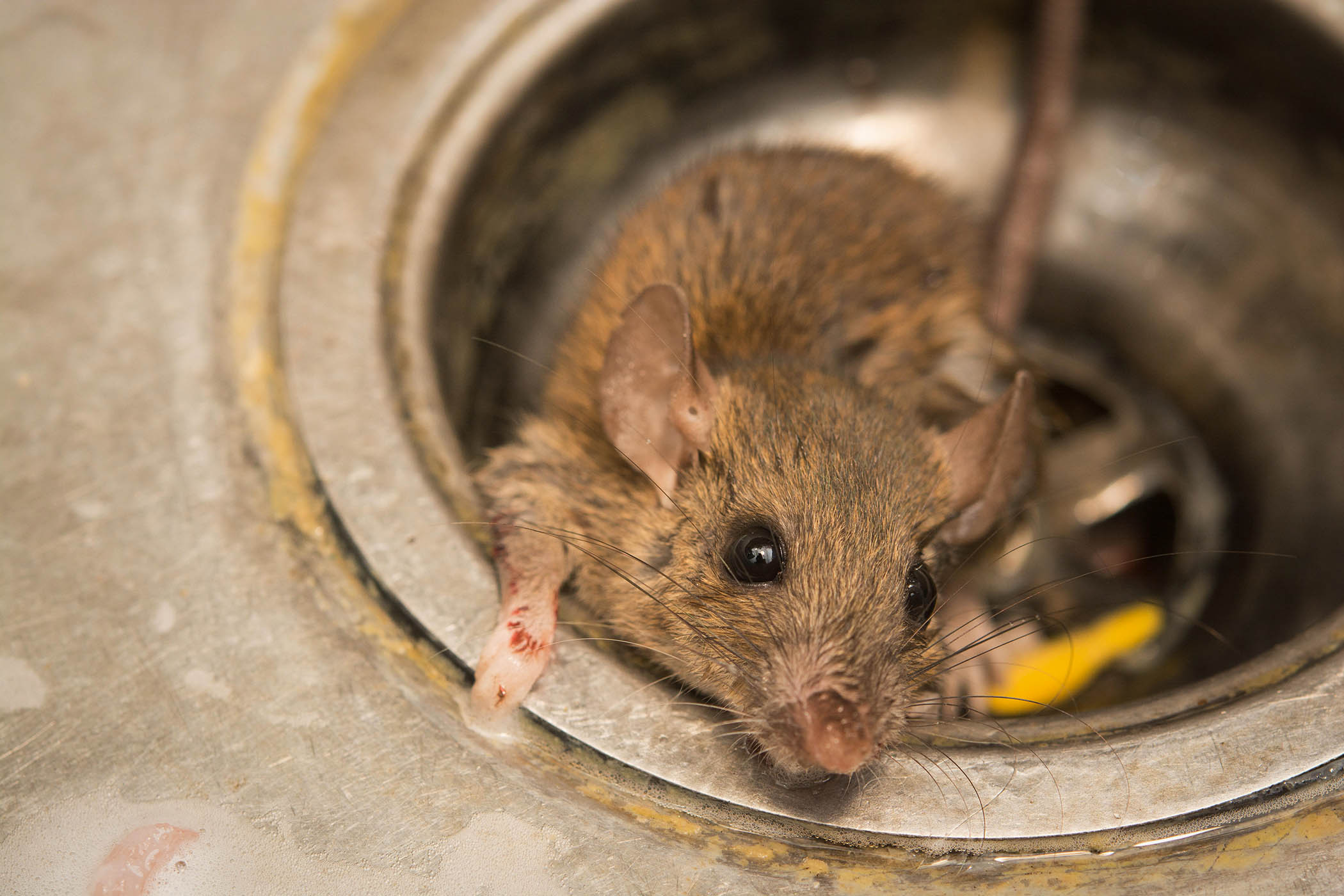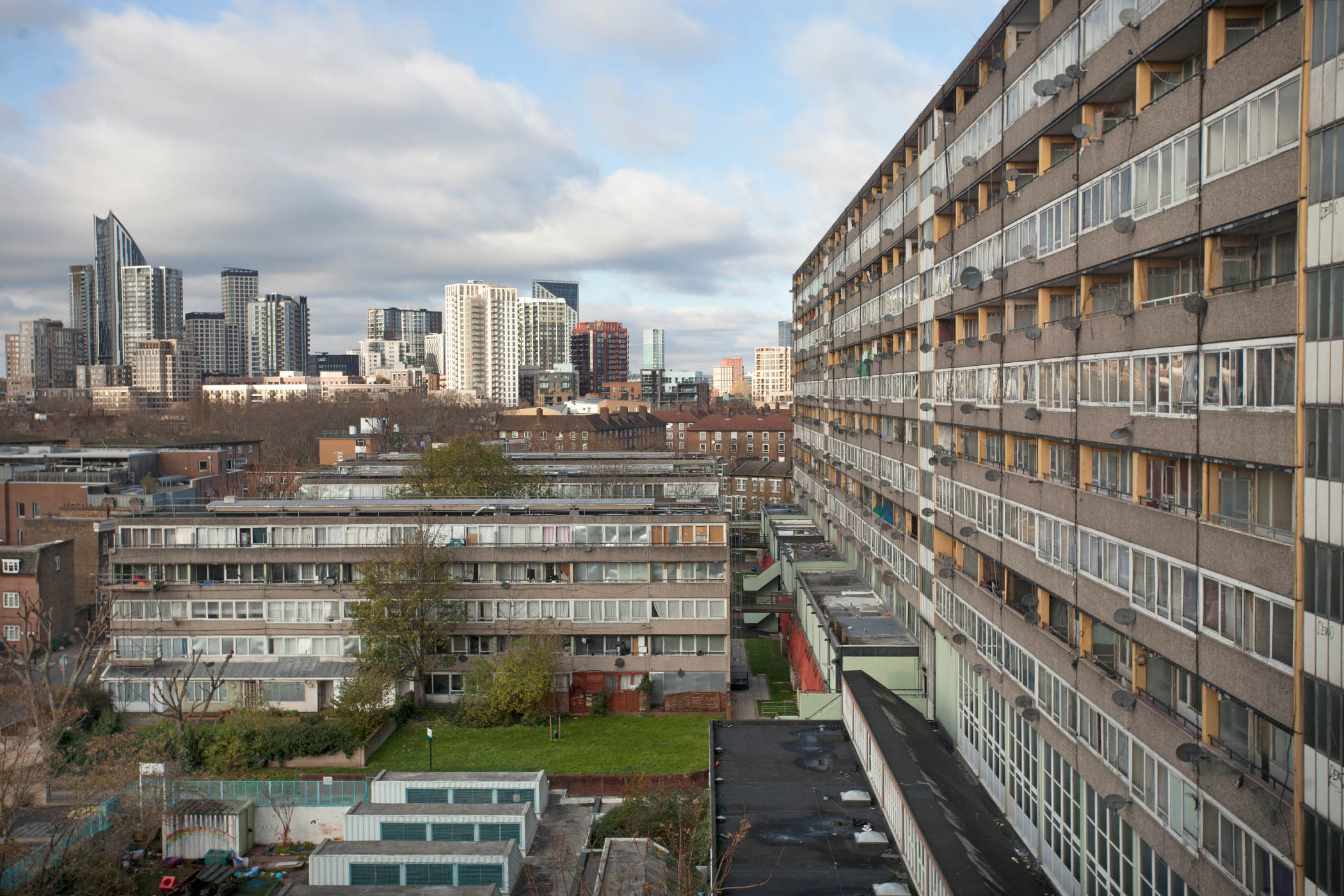When Owen Hunt moved into a group flat in a student hall in London a year ago, he had no idea he would also be sharing with rats. “Every time you walked into the kitchen you had to brace yourself to see at least three rats, even in the day, but reception denied they were there,” he said.
Hunt, a first-year student at Goldsmiths, University of London, chose privately owned Dean House in Lewisham, south London, which cost £260 a week, because he liked the photos online. When he arrived, the reality was very different: “It was visibly dirty everywhere. My carpet had a huge stain and the fridge stank.”
Like hundreds of students across the country who are fighting legal battles for rent refunds from halls, Hunt discovered there was no way out of paying rent for a full year. Labour’s landmark Renters’ Rights Act, which passed into law last month, will do nothing to change that.
The act has introduced protections for private renters, including an end to fixed-term contracts, which trapped them in year-long tenancies even if the property was substandard. They can now break their agreement and leave with two months’ notice.
This will help second and third-year students in damp or rodent-infested private houses. But students such as Hunt, in purpose-built student halls that are now often owned and run by multimillion-pound companies backed by private investment, are not covered.
When Hunt left Dean House this summer, he also dropped out of university. His substandard accommodation was a big factor.
“It made me so depressed,” he said. Dismayed by the situation, his mother, Patricia Vallejo-Gorman, collected evidence from more than 50 other unhappy residents: 19 of them spent four months last winter with no heating or hot water and received apology refunds of less than two weeks’ rent.
Shreya Gopal, a student from India, who lived in Dean House last year, made complaints about problems including black mould, “a persistent smell … as if something is dying in the walls” and radiators that either would not switch off, leaving Gopal “suffocating” at night, or would not turn on.
But when Vallejo-Gorman moved her son out on 30 August, weeks before a new cohort of freshers moved in, she visited five other flats in the same building. She says that in each kitchen she unscrewed kickboards at the base of cupboards and took videos of what appears to be fresh rat excrement.
In September, Lewisham council emailed Vallejo-Gorman, confirming that it planned to issue a second improvement notice, requiring the company to provide continuing evidence that it was tackling the infestation of rats, including engaging a pest-control contractor “until the rat infestation is eradicated”.
Newsletters
Choose the newsletters you want to receive
View more
For information about how The Observer protects your data, read our Privacy Policy
A spokeswoman for Homes for Students said that when it took over the management of Dean House from Goldsmiths in 2021, it was aware of “historic[al] issues within the building and acted immediately, working to ... undertake extensive refurbishment works”. She said that it had now taken “all necessary measures to address the issues raised by the council” and expected the improvement order to be lifted “imminently”.
A survey of students in all types of accommodation by the National Union of Students last year found 84% had experienced problems with the quality of their accommodation, half reporting mould and 20% suffering pest infestations.
With the annual churn of new students, and fierce competition to secure accommodation in many university towns and cities, experts warn that companies running inadequate student blocks still have little incentive to improve. And under the terms of the new Renters’ Rights Act, companies running student blocks that sign up to a national code of conduct can continue using fixed-term contracts, locking students into paying for the full year, no matter how unhappy they are.
While it is not hard to find scathing hall reviews online, until recently court actions have been rare. Unite, the biggest provider of student accommodation in the UK, is facing a group action from 350 students across 10 of its blocks in Liverpool, and more in Coventry, in relation to local authority licensing schemes designed to ensure basic safety and quality standards.
Students at Unite halls in the London borough of Haringey recently won refunds in a test case tribunal where Unite had not signed up to the scheme.
A spokesperson for Unite said: “The rent repayment orders relate to an historic issue in a small number of our buildings due to errors in submitting applications for new licensing schemes, which is now rectified.”
He said not all the properties and rooms required council licences but, where needed, they had now been applied for and had been changed “to avoid the error happening in future”.
Guy Morris, a director of Flat Justice, the not-for-profit tenants’ rights group that is leading the actions against Unite as well as a group action against Dean House, said: “Students will continue to sign up for halls for a 12-month term which they cannot escape from, however appalling the conditions when they arrive.”
He argues that the codes of conduct, which do not force property providers to pay financial compensation to students, even if a complaint is upheld, do little to hold them to account.
Back at Dean House, Bailey Adams, a student at Greenwich University, says he has reluctantly signed up to stay for a second year because he could not find an alternative block he could afford.
Last year, he complained about seeing rats in his kitchen, while boiler problems repeatedly left his flat without hot water. “They are starting to renovate, but it’s slow,” he said. “I don’t think the rats have gone. The problems here aren’t historic[al], they are ongoing.”
A spokesperson for the Ministry of Housing, Communities and Local Government said: “Students deserve good-quality homes, and all student accommodation providers must uphold the highest standards or risk strict sanctions.”
Photograph by Rawin Wiangya/Alamy


